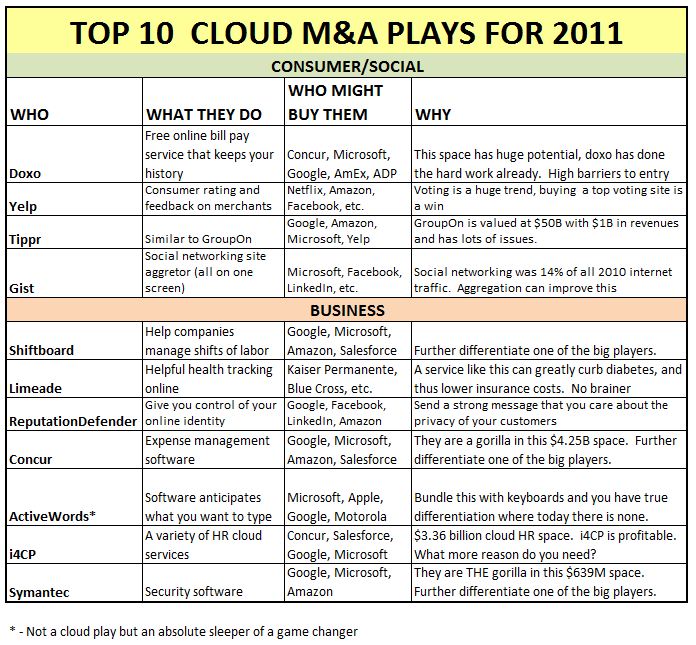I spend a lot of time looking at and writing about disruptive business models (many of them are discussed in my most recent book, Surviving a Business Earthquake, and lately I have been talking about a handful that I think are really meaningful that will continue to mature over time and work their way into lots of other industries.
1) Friending. No, it’s not new. At all. But the friend trend that I have noticed is that the practice has jumped the social networking fence and is becoming useful as a function in not-so-social industries. A company that I have blogged about before, doxo, is the one that really opened my eyes to this.  What doxo figured out is that it’s OK for us to have to log on to our credit card site and our utility site, and our Fidelity site with our passwords and what not, but it’s better if we can do that from a single place, and effectively “friend” the businesses that we interact with on a regular basis. Call it a handshake or friending or something else, but now that we have gotten so familiar with it through places like Facebook and LinkedIn, we understand the definition of “friending” and “connecting” from these sites, and now these terms and their actions are primed to jump into other places that are not social, but where certain levels of trust need to be established. This is big and the companies like doxo that figure that out, there are some great new businesses to start. And for already established organizations, now’s the time to put on your thinking cap and figure out where friending may play a role for your employees, customers, and partners.
What doxo figured out is that it’s OK for us to have to log on to our credit card site and our utility site, and our Fidelity site with our passwords and what not, but it’s better if we can do that from a single place, and effectively “friend” the businesses that we interact with on a regular basis. Call it a handshake or friending or something else, but now that we have gotten so familiar with it through places like Facebook and LinkedIn, we understand the definition of “friending” and “connecting” from these sites, and now these terms and their actions are primed to jump into other places that are not social, but where certain levels of trust need to be established. This is big and the companies like doxo that figure that out, there are some great new businesses to start. And for already established organizations, now’s the time to put on your thinking cap and figure out where friending may play a role for your employees, customers, and partners.
2) Getting nothing, but paying for it. Farmville from Zynga is probably one of the more familiar examples of this, though Icelandic gaming company CCP is another great example. ![]() In a gaming environment, if you want your farm to do something more or in Eve online you want your spaceship to be cooler or faster and you don’t want to have to do all of the hard work to make it happen, you can pay for it so that your gaming experience is better.
In a gaming environment, if you want your farm to do something more or in Eve online you want your spaceship to be cooler or faster and you don’t want to have to do all of the hard work to make it happen, you can pay for it so that your gaming experience is better.  With Eve, you are already paying a monthly fee to play the game, and you can also pay a lot more to personalize it faster. So you are paying for something and you don’t get anything tangible for it. I predict that as people get more familiar with this notion, like friending, we will see this bleed into other industries. To be clear this isn’t like buying a ring-tone that is intellectual property, and I am clear that you can argue that this is just paying more for the entertainment you are already paying for, to be more entertained, my point is simply that as people get familiar with the idea of paying and not really getting anything tangible for it, we will see this proliferate.
With Eve, you are already paying a monthly fee to play the game, and you can also pay a lot more to personalize it faster. So you are paying for something and you don’t get anything tangible for it. I predict that as people get more familiar with this notion, like friending, we will see this bleed into other industries. To be clear this isn’t like buying a ring-tone that is intellectual property, and I am clear that you can argue that this is just paying more for the entertainment you are already paying for, to be more entertained, my point is simply that as people get familiar with the idea of paying and not really getting anything tangible for it, we will see this proliferate.
3) Getting something, but not paying for it. This is a subject I have blogged about before as well, most notably with alice.com, the online merchant that sells goods at cost with free shipping.  They make their money by charging huge rates for ads and coupons because they provide the age, gender, and ZIP code of customers that respond to the ads and coupons in real time. Now I still think that’s a huge idea, but when I found out Coinstar (dump your coins into a big green machine and out pops cash you can spend) was no longer charging a 7% fee for the service they provide, and now the service is free to the customers (you can still pay the 7%, but if you choose to load up all of your cash on a card for a specific merchant, like amazon, then it’s free to the customer, and amazon pays Coinstar a fee).
They make their money by charging huge rates for ads and coupons because they provide the age, gender, and ZIP code of customers that respond to the ads and coupons in real time. Now I still think that’s a huge idea, but when I found out Coinstar (dump your coins into a big green machine and out pops cash you can spend) was no longer charging a 7% fee for the service they provide, and now the service is free to the customers (you can still pay the 7%, but if you choose to load up all of your cash on a card for a specific merchant, like amazon, then it’s free to the customer, and amazon pays Coinstar a fee). ![]() Costco is actually another company that doesn’t make any money selling their products, they make their money from their membership dues. The monster trend I see here is companies figuring out how to not make the customer pay for their costs – so the customer gets a better deal. Back to Zynga, I am not an expert in their games, but I wouldn’t be at all surprised to see them selling bottled water for the farmers and the user getting the choice between Dasani (from Coca-Cola) or Evian and then selling the data of age, gender, and ZIP code back to those companies about who chose which product, for example.
Costco is actually another company that doesn’t make any money selling their products, they make their money from their membership dues. The monster trend I see here is companies figuring out how to not make the customer pay for their costs – so the customer gets a better deal. Back to Zynga, I am not an expert in their games, but I wouldn’t be at all surprised to see them selling bottled water for the farmers and the user getting the choice between Dasani (from Coca-Cola) or Evian and then selling the data of age, gender, and ZIP code back to those companies about who chose which product, for example.
4) David beating Goliath. Historically, a tiny company beating out a monster company has been rare, for really obvious reasons. Amazon took out Barnes & Noble before becoming a monster company in their own right, being way more than just a book store, but that’s not the kind of trend I am talking about.  The poster child of this new trend is Rovio, the makers of the crazy-popular game Angry Birds. It has been a top free and paid application in the iPhone store for a very long time. What I love about the story is that it’s still a company with less than 20 employees based over in Europe. So the Rovio’s of the world can stay tiny companies and create markets that we would expect someone like Microsoft or EA Sports or some other massive gaming company to own. Will someone buy Rovio? It kind of doesn’t matter. The point is that with the platforms of smartphones and the internet in general, tiny agile companies can have a very real,very large global footprint and be very successful. I am not saying that Rovio is going to put EA Sports out of business, I am just saying that they are competing in a space that is way bigger than they are, and they are winning big. I think we will see a lot more Rovio’s soon, and that’s the trend.
The poster child of this new trend is Rovio, the makers of the crazy-popular game Angry Birds. It has been a top free and paid application in the iPhone store for a very long time. What I love about the story is that it’s still a company with less than 20 employees based over in Europe. So the Rovio’s of the world can stay tiny companies and create markets that we would expect someone like Microsoft or EA Sports or some other massive gaming company to own. Will someone buy Rovio? It kind of doesn’t matter. The point is that with the platforms of smartphones and the internet in general, tiny agile companies can have a very real,very large global footprint and be very successful. I am not saying that Rovio is going to put EA Sports out of business, I am just saying that they are competing in a space that is way bigger than they are, and they are winning big. I think we will see a lot more Rovio’s soon, and that’s the trend.
5) Adding a third party to two party transactions. This borders on sounding like a repeat of #3, or a nuance of it, but I felt it an important enough nuance to give it its own bullet. In most traditional business models, there is the merchant and the customer (and these days at least one middle man). Companies had to charge the customer enough to cover their costs and make as much profit as the laws of supply and demand would permit. The fact that Alice, and Costco, and Coinstar can get their costs covered by someone else, that is massive and I think it’s the biggest trend of all. Yes, it’s great that the consumer wins by getting a better deal (point #3), but taking the basic two party transaction, and adding a third party is a pretty incredible thing to be able to do. Per my Dasani water comment in #3 above, I wouldn’t be surprised to see Zynga get more into this space (if they haven’t already – as I said -I am no Zynga expert).
So those are the really big trends that I have been seeing and talking about lately. I’d love to hear your feedback (and corrections).
-Ric
P.S. And we are working to fix the issue that if you do an internet search on my name you get an unexpected result. As you might expect we are investigating whether we need to firm up security a bit on the site.


 8) iPAD. Not a whole lot to say hear. This device has changed the world, with 7 million units sold in the first year and another 32 million projected to sell in 2011, this device is paving the way to the future of computing. My son is using his right next to me as a peck away at my IBM ThinkPad. The big rethink here is really just taking the iPhone and making it bigger. That’s really all it is, but it makes a HUGE difference in the experience. The great irony is that Microsoft actually launched this technology before anyone else with the Surface product, the problem is, they never took action to slim it down to iPhone or iPad size until years after Apple had already done just that. Apple really didn’t innovate, they really just copied what Microsoft did, which is funny given that Windows was really a copy of the Mac. Maybe Apple will get the last laugh. Their shareholders may have already . . .
8) iPAD. Not a whole lot to say hear. This device has changed the world, with 7 million units sold in the first year and another 32 million projected to sell in 2011, this device is paving the way to the future of computing. My son is using his right next to me as a peck away at my IBM ThinkPad. The big rethink here is really just taking the iPhone and making it bigger. That’s really all it is, but it makes a HUGE difference in the experience. The great irony is that Microsoft actually launched this technology before anyone else with the Surface product, the problem is, they never took action to slim it down to iPhone or iPad size until years after Apple had already done just that. Apple really didn’t innovate, they really just copied what Microsoft did, which is funny given that Windows was really a copy of the Mac. Maybe Apple will get the last laugh. Their shareholders may have already . . . FASTMAC. Are you kidding me?! The USB port of the laptop that we use for so many things, the company FastMac realized that “what” we are doing a lot of the time is simply charging our devices, whether it’s an iPad or a Cobra Toys copter, or something else, so the folks at FastMac had the “duh” idea of the year to offer an outlet with a USB plug. Why didn’t we think of that?! Ugh.
FASTMAC. Are you kidding me?! The USB port of the laptop that we use for so many things, the company FastMac realized that “what” we are doing a lot of the time is simply charging our devices, whether it’s an iPad or a Cobra Toys copter, or something else, so the folks at FastMac had the “duh” idea of the year to offer an outlet with a USB plug. Why didn’t we think of that?! Ugh.